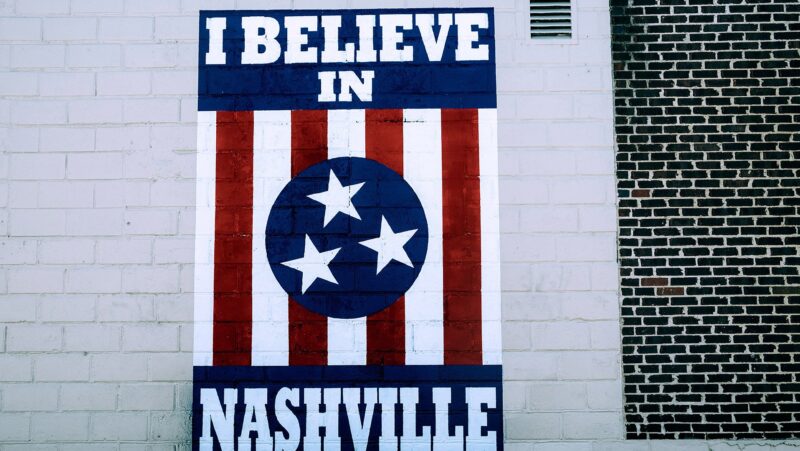Perspective: No Better Example Today of What Our First Amendment Freedoms Really Mean, Thanks to Vladimir Putin

There is no better current example of what the First Amendment really means – and how it works – than the real-time proof provided by Russian President Vladimir Putin’s invasion of Ukraine.
In the United States, we see independent reporting on the invasion from liberal and conservative news outlets, buttressed by uncensored video and unfettered, penetrating personal accounts from the battlefront. Already four journalists have been killed and others injured trying to bring the truth of war back to free people.
We heard from Ukrainian President Volodymyr Zelensky in a speech to Congress and saw a video he shared documenting the horror inflicted on that nation by Russian armed forces.
In our country, pundits of varying political stripes across a range of media offer views for and against Western sanctions on Russia. They rate and debate President Joe Biden and Congress’ handling of the crisis.
However, in Russia, more than 10,000 anti-war demonstrators have been arrested thus far following protests in more than 69 cities, threatened with long prison terms just for speaking out.
For Russian citizens, there is just one state media account of Putin’s “special military operation” reporting nothing but positive “news.” No alternative voices, no critics are legally permitted to speak over the air or online, where many sites are being blocked.
When a Moscow Channel One staffer interrupted a broadcast of the top-rated Russian program “Vremya” by holding up a sign saying, “They are lying to you here,” she was arrested, hauled into court after 14 hours of interrogation and fined – with more serious criminal charges looming.
In the U.S., we have the chance to make up our own minds about the conduct of our leaders and the path they’ve chosen in punishing Russia. But in Russia, the government allows only one view and one approved voice. Just using the words “war,” “attack” or “invasion” — or even, in some cases, implying them — is enough to get you thrown in prison. Really.
Some do want to shut down a few voices in the U.S. Some critics of Fox News, Tucker Carlson and former President Donald Trump are shouting “treason” over comments seen as favorable to Putin, or as advancing Russian propaganda and misinformation. There are even calls for the Federal Communications Commission to censor Carlson and others on TV.
Many of today’s calls for censorship focus on online comments and personalities. But those platforms, users and personalities are protected from government action by both their individual First Amendment rights and by those same rights enjoyed by private social media platforms.
By law, some exceedingly narrowly defined speech in wartime does fall outside the protection of the First Amendment. Two examples are providing details in advance of troop movements or ship sailings and disclosing military technology secrets.
This isn’t the first time that people have sought to limit speech further.
In 1798 – just seven years after the Bill of Rights was adopted – the potential for war with France led to the Sedition Act, which made it a crime to criticize Congress or the president. About two dozen editors were jailed before the law expired in disgrace in 1802. Some 60 years later, Abraham Lincoln found reason to ignore freedom of the press by shutting down nearly 300 newspapers and arresting editors considered to be Confederate sympathizers.
During World War I, President Woodrow Wilson created the Committee on Public Information, a propaganda agency that operated directly out of the White House. To stifle war critics, Congress passed the Espionage Act of 1917, which is still in effect, and the Sedition Act of 1918. They again made it a crime to criticize Wilson, Congress, the war, the Constitution, even military uniforms. More than 2,000 people were prosecuted under these laws.
In World War II, dispatches from the front lines were routinely censored. Many major news correspondents accepted limits on what they could report in return for access to troops or to the means of transmitting their stories. By the early 1950s, the Cold War brought about a host of governmental efforts to control information and opinion. It was the era of industry blacklists, Sen. Joseph McCarthy and the House Un-American Activities Committee. They ran roughshod over the rights of educators, entertainers, military personnel and government officials — often by merely targeting them as suspected communists — with disastrous impacts on their lives.
Protesters in the Vietnam War period were met with “America – Love it or Leave It” taunts, despite the First Amendment principle that public dissent is a protected means of challenging government actions and policies.
Vigorous, sometimes rancorous exchanges are exactly what this nation’s founders saw as the best path toward mutual understanding and collective progress. In the end, our system of self-governance depends on the back-and-forth of the marketplace of ideas to arrive at the best possible decision for the greatest number of people. It’s not perfect, but it’s arguably a better outcome than what is produced by a single voice speaking lies and propaganda.
The principal author of the First Amendment, James Madison, successfully endured a test of those freedoms. Faced with loud opposition to the War of 1812 – to the extent that New England threatened to secede – Madison sought no constitutional authority to silence his critics. He said, “Better to leave a few of its noxious branches to their luxuriant growth than by pruning them away to injure the vigor of those yielding the proper fruit.”
Let’s hope we keep in mind Madison’s good constitutional gardening advice on freedom of speech whenever anyone suggests we prune the “noxious branches” they happen to dislike.
Gene Policinski is a senior fellow for the First Amendment at the Freedom Forum. He can be reached at [email protected].
Media Fatigue: 4 Ways to Fight Information Exhaustion
Local news empowers us to know and exercise our freedoms
Related Content

